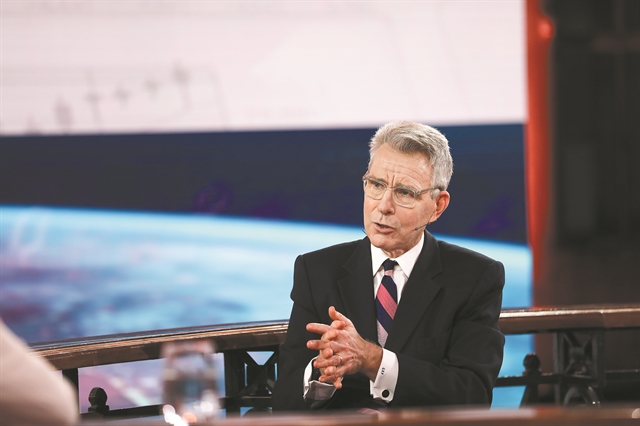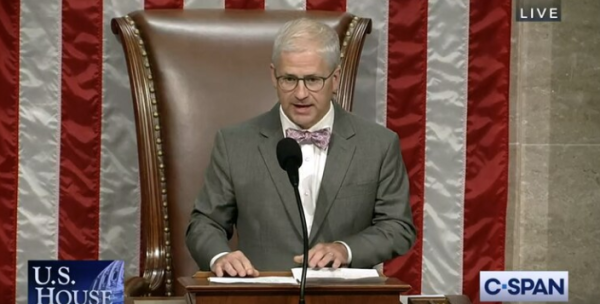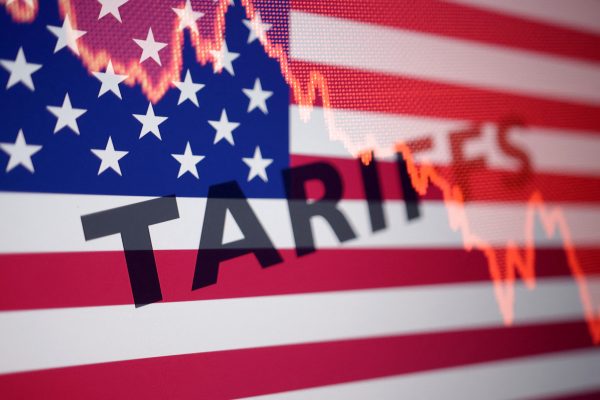
The outgoing US Ambassador, Geoffrey Pyatt, spoke about the Greek-Turkish crisis of 2020 and revealed unknown aspects. According to him, Greece and Turkey reached the brink of conflict at that time and it was necessary, as he says, to “take action intensively to help to prevent things from getting out of control.”
“What was happening was more dramatic than the image projected by the media,” he said in an interview with Kathimerini.
According to Mr. Pyatt, “you heard US Secretary of State Mike Pompeo say we thought this was a very serious crisis and we worked hard to help keep things under control. Conditions are much better today, despite the continuing unacceptable activities, the overflights, the rhetorical exaggerations, the silly statements questioning the sovereignty of the islands, which from the American side is indisputable.”
On Article 5
“The strategic landscape around the Aegean, the Black Sea, Asia Minor has changed dramatically since February 24, and I think the developments in Ukraine make it more important for the US to do what it can to ensure that Turkey will behave as a good NATO ally towards all its neighbors. “This is not the time for distractions, whether created by politics, rhetoric or military maneuvers.”
Regarding security guarantees, the outgoing US Ambassador to Athens points out that “there is Article 5. You have heard from President Biden a very clear commitment to it and the willingness to provide American forces, equipment and funds to strengthen and to defend this guarantee “.
Asked if it could be implemented “even if the threat comes from within the Alliance”, Mr Pyatt said: “Article 5 is the cornerstone of everything we do in terms of our security relationship with the Greece and NATO “.
Biden – Mitsotakis meeting
Ahead of Prime Minister Kyriakos Mitsotakis’s visit to Washington and meeting with Joe Biden, Mr Pyatt said he was aware of the importance for Greece of the invitation, for the US President himself and for the US Government as a whole.
He added that they would discuss, among other things, the ongoing efforts with allies and partners to support the Ukrainian people and impose financial sanctions on Russia for its unprovoked invasion, energy security and cooperation with Greece on natural gas.
Latest News

Airbnb: Greece’s Short-Term Rentals Dip in March Amid Easter Shift
Data from analytics firm AirDNA shows that average occupancy for short-term rentals dropped to 45% in March, down from 49% the same month last year.

Easter Week in Greece: Holy Friday in Orthodoxy Today
At the Vespers service on Friday evening the image of Christ is removed from the Cross and wrapped in a white cloth

Meloni and Trump Meet in Washington, Vow to Strengthen Western Ties
“I am 100% sure there will be no problems reaching a deal on tariffs with the EU—none whatsoever,” Trump stressed.

ECB Cuts Interest Rates by 25 Basis Points in Expected Move
The ECB’s Governing Council opted to lower the deposit facility rate—the benchmark for signaling monetary policy direction—citing an updated assessment of inflation prospects, the dynamics of underlying inflation, and the strength of monetary policy transmission.

Current Account Deficit Fell by €573.2ml Feb. 2025: BoG
The improvement of Greece’s current account was mainly attributed to a more robust balance of goods and, to a lesser extent, an improved primary income account

Hellenic Food Authority Issues Food Safety Tips for Easter
Food safety tips on how to make sure your lamb has been properly inspected and your eggs stay fresh.

Greek Kiwifruit Exports Smash 200,000-Ton Mark, Setting New Record
According to data by the Association of Greek Fruit, Vegetable and Juice Exporters, Incofruit Hellas, between September 1, 2024, and April 17, 2025, kiwifruit exports increased by 14.2%.

Easter Tourism Boom: Greece Sees 18.3% Surge in Hotel Bookings
Among foreign markets, Israel has emerged as the biggest growth driver, with hotel bookings more than doubling—up 178.5% year-on-year.

Greece to Launch Fast-Track Tender for Offshore Hydrocarbon Exploration
Last week, Papastavrou signed the acceptance of interest for the two Cretan blocks, while similar decisions regarding the two Ionian Sea blocks were signed by his predecessor

American-Hellenic Chamber of Commerce to Open Washington D.C. Branch
AmCham's new office aims aims to deepen U.S.-Greece economic ties and promote investment and innovation between the two countries







![Πλημμύρες: Σημειώθηκαν σε επίπεδα ρεκόρ στην Ευρώπη το 2024 [γράφημα]](https://www.ot.gr/wp-content/uploads/2025/04/FLOOD_HUNGRY-90x90.jpg)




![Airbnb: Πτωτικά κινήθηκε η ζήτηση τον Μάρτιο – Τι δείχνουν τα στοιχεία [γράφημα]](https://www.ot.gr/wp-content/uploads/2024/07/airbnb-gba8e58468_1280-1-90x90.jpg)

























![Airbnb: Πτωτικά κινήθηκε η ζήτηση τον Μάρτιο – Τι δείχνουν τα στοιχεία [γράφημα]](https://www.ot.gr/wp-content/uploads/2024/07/airbnb-gba8e58468_1280-1-600x500.jpg)


 Αριθμός Πιστοποίησης
Αριθμός Πιστοποίησης